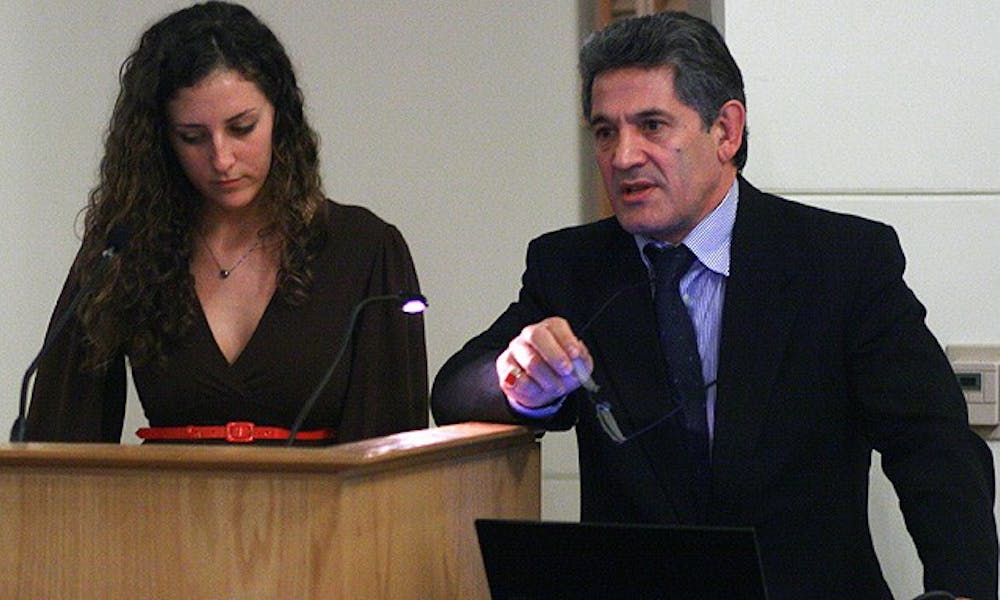During the Russian Chechen Wars, a vicious conflict unbeknownst to many in the West, thousands of children sustained injuries requiring extensive plastic surgery. Luckily for some of them, Dr. Khassan Baiev was there to help.
Baiev, a Chechen native and chairman of the International Committee for the Children of Chechnya, spoke Tuesday to a large group of students and faculty gathered in White Lecture Hall about his experiences helping sick and injured children during and after the conflict.
In the last two decades, Chechnya, a federal subject of Russia, was immersed in violent struggles for independence. Although the conflict did not result in Chechen autonomy, it destroyed the region’s infrastructure and socioeconomic system. It also left thousands of people handicapped and unable to contribute physically to society.
“After the war, there were 26,000 children left without parents—14,000 children were left without arms or legs. And there is a very high statistic of people in Chechnya with cancer,” Baiev said.
He added that he helped both Chechen and Russian soldiers indiscriminately during the war, upsetting both sides in the process. Eventually, staying in Chechnya became too dangerous, and Baiev was forced to seek political asylum in the United States.
He returned to Chechnya in 2007 with a team of plastic surgeons and has gone back several times for four to five months at a time since.
During his presentation, Baiev showed the audience a series of photographs from one of his recent trips. The slides included images of children with cleft palates, severe burns and amputated limbs.
One such image displayed a child who had been burned so badly that Baiev had to operate on him to give him eyelids so that he could close his eyes.
Another picture depicted a young man who had lost both of his hands and his eyes in a land mine explosion.
“I feel very fortunate, as an immigrant from the Ukraine, to be here, considering that there are kids who are my age who have missing limbs and have to grow up in that economy where there aren’t even that many people to treat them and where they can’t even work in agriculture because there are mines lining so much of the country,” freshman Paul Chubinskiy said.
Baiev also addressed several medical issues in Chechnya, noting that chemicals from the warfare have caused one in every three children to be born with defects, many of which are extremely rare and require treatment from specialists.
“The biggest tragedy in Chechnya today is that there just aren’t enough specialists because during the first war, a lot of doctors and nurses died,” he said. “So when the second war broke out, all of these doctors and nurses left to resettle in Europe and the younger generation that’s working there now doesn’t have the experience—they’re still young.”
Although Baiev spoke about the war, he left out the politics, remaining neutral to both the Russian and Chechen sides.
“I really enjoyed the apolitical nature of the talk,” said Timur Kuran, professor of economics. “He didn’t use this as an opportunity to make a political gesture.”
Baiev said he spoke to raise awareness, not to comment on the political climate of Chechnya.
“People are tired of fighting and they just want to live in peace,” he said.
Get The Chronicle straight to your inbox
Signup for our weekly newsletter. Cancel at any time.

